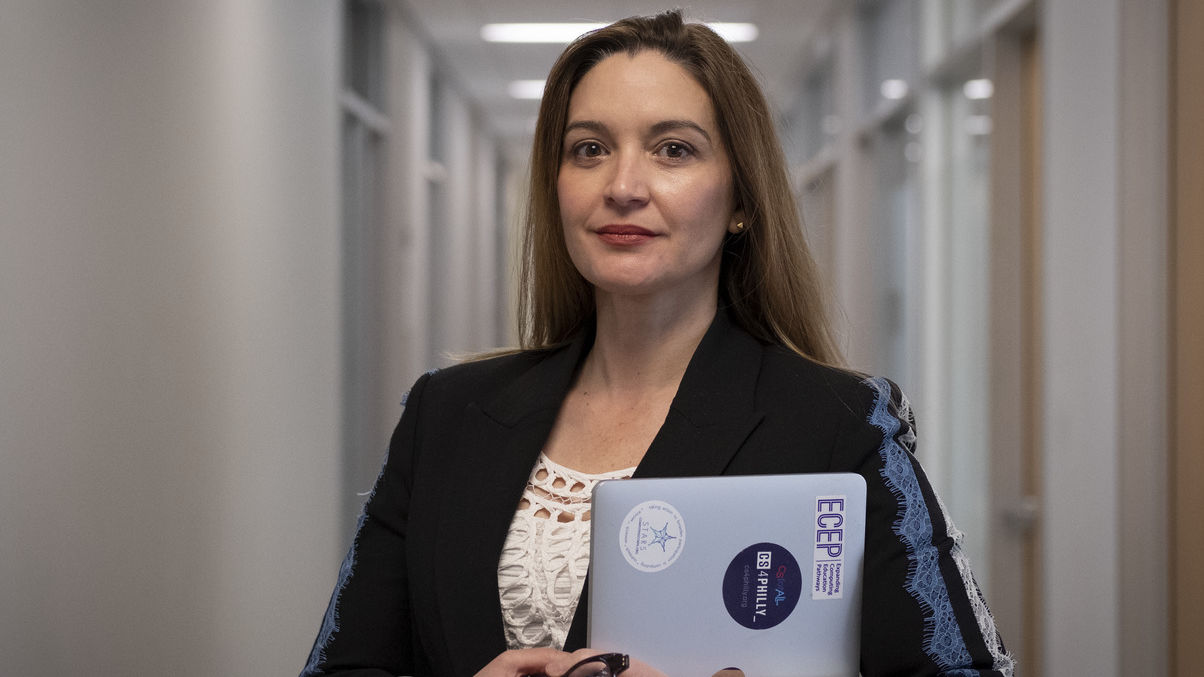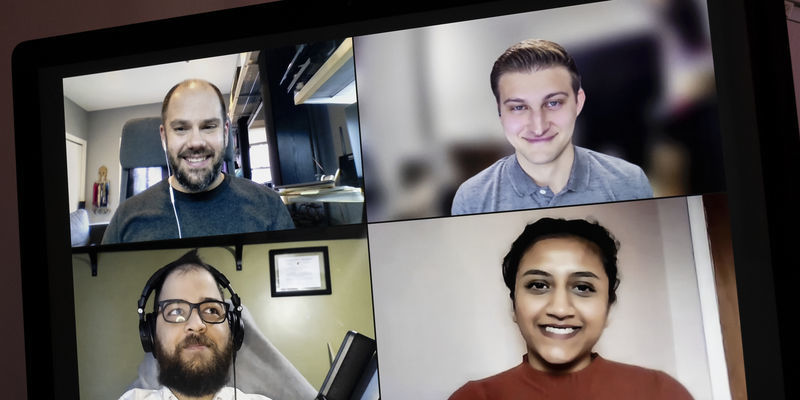Temple-headquartered STARS Computing Corps receives a $3 million National Science Foundation grant
STARS Computing Corps’ latest funding will allow it to continue and expand.

STARS Computing Corps—a grant-funded organization headquartered at Temple that includes colleges and universities across the U.S.—was recently awarded $3 million from the National Science Foundation (NSF) to continue its mission and programs and develop new initiatives.
The goal of STARS is to make college computing department practices more equitable and inclusive places where individuals from historically underrepresented groups in computing— including Black, Hispanic, female and people with disabilities—can be their authentic selves and participate fully in computing education.
Initially an alliance of 10 institutions, STARS has grown to 50 colleges and universities and hopes to recruit 30 new institutions through this latest grant.
Temple is the organization’s home base, serving as the backbone of the national alliance.
“Temple is the perfect place for STARS to be headquartered because it welcomes students from a lot of different backgrounds,” said Jamie Payton, chair of the Department of Computer and Information Sciences at Temple, lead investigator of the new NSF award, and executive director of STARS. “It’s in a diverse city, and the student population has reflected that over the years.”
STARS includes a broad range of higher education institutions, such as historically Black colleges and universities, large research universities that are predominately white, community colleges, and women’s colleges. This wide variety allows these institutions to learn from one another as they face challenges incorporating diversity and inclusion.
“You may be one of a few or the only one who looks like you in a particular class in computer science, but by connecting students across an alliance of institutions, we can provide identity-focused communities where students can share their experiences and cultural touchpoints and how those connect to their motivation, understanding and use for the study of computing,” said Payton.
“Students care about equity and want to use their skills to improve the computer science culture,” she added. “We create opportunities for them to develop confidence and practice in these skills and to connect them to a purpose that’s socially relevant.”
Students achieve this purpose through service learning projects. Many of them perform K–12 outreach in which they adapt or tailor the STARS programs for their local community needs and work with K–12 teachers to offer lessons during the school day, after-school programs, Saturday workshops and summer camps designed to develop equitable and diverse computer science education and experiences that are meaningful for all students.
“Teaching others helps students see themselves as future leaders in computer science and see they’re doing something meaningful and impactful for their community,” said Payton.
In addition to continuing existing programs for students and programs that train computing faculty to apply more inclusive practices, STARS is developing new initiatives as part of the latest NSF grant.
One area of focus is looking at the increasing number of institutions that qualify as emerging Hispanic-serving institutions. STARS is analyzing data about these schools and their student populations in computing departments. It is also developing cultural competencies among faculty to address the unique context of Hispanic students in computer science degree programs and to increase representation of Hispanic students as computing degree holders.
STARS is also increasing support for community colleges, which have large populations of Black, Hispanic and students with disabilities, much higher than at four-year institutions.
Additionally, there’s a new program focusing on entrepreneurship in computing for Black and Hispanic students. These populations are often underrepresented as entrepreneurs. This program will allow at least 30 students to participate in an entrepreneurial workshop to help develop their business plans and educate computer science faculty members on how to provide inclusive approaches to entrepreneurship in their courses.
STARS is aiming to integrate career preparation into standard computer science curriculums, too, so that students can prepare for internship and job interviews as part of their coursework since not everyone has opportunities outside of class to get ready for these interviews.
Through the latest NSF grant, STARS will keep hosting the Research on Equity and Sustained Participation in Engineering, Computing and Technology (RESPECT) conference, where researchers present peer-reviewed articles. The STARS Celebration—which features training, tools and resources for students and faculty to develop and implement projects to broaden participation in computing in their own communities—will also continue.
The recent award is largely due to STARS’ successful outcomes, especially for Black students in computing and Black faculty who participate as leaders. Additionally, 92% of STARS alumni report that they’re still in computing.
“We are shifting systems that haven’t been inclusive for those [underrepresented] students, which creates a lasting impact,” said Payton. “It can lead to increased diversity in the population of students who earn computer science degrees and the diversity of our workforce, which is really important. When we have a computer science workforce that doesn’t reflect the population, we end up with products and systems that don’t reflect it.”
As the headquarters of STARS, Temple is at the forefront of changing computer science.
“Temple can be seen as a national leader for justice-centered computing education,” said Payton. “It can set the stage for many other institutions to focus on diversity, equity and inclusion for their students in computing degree programs.”


